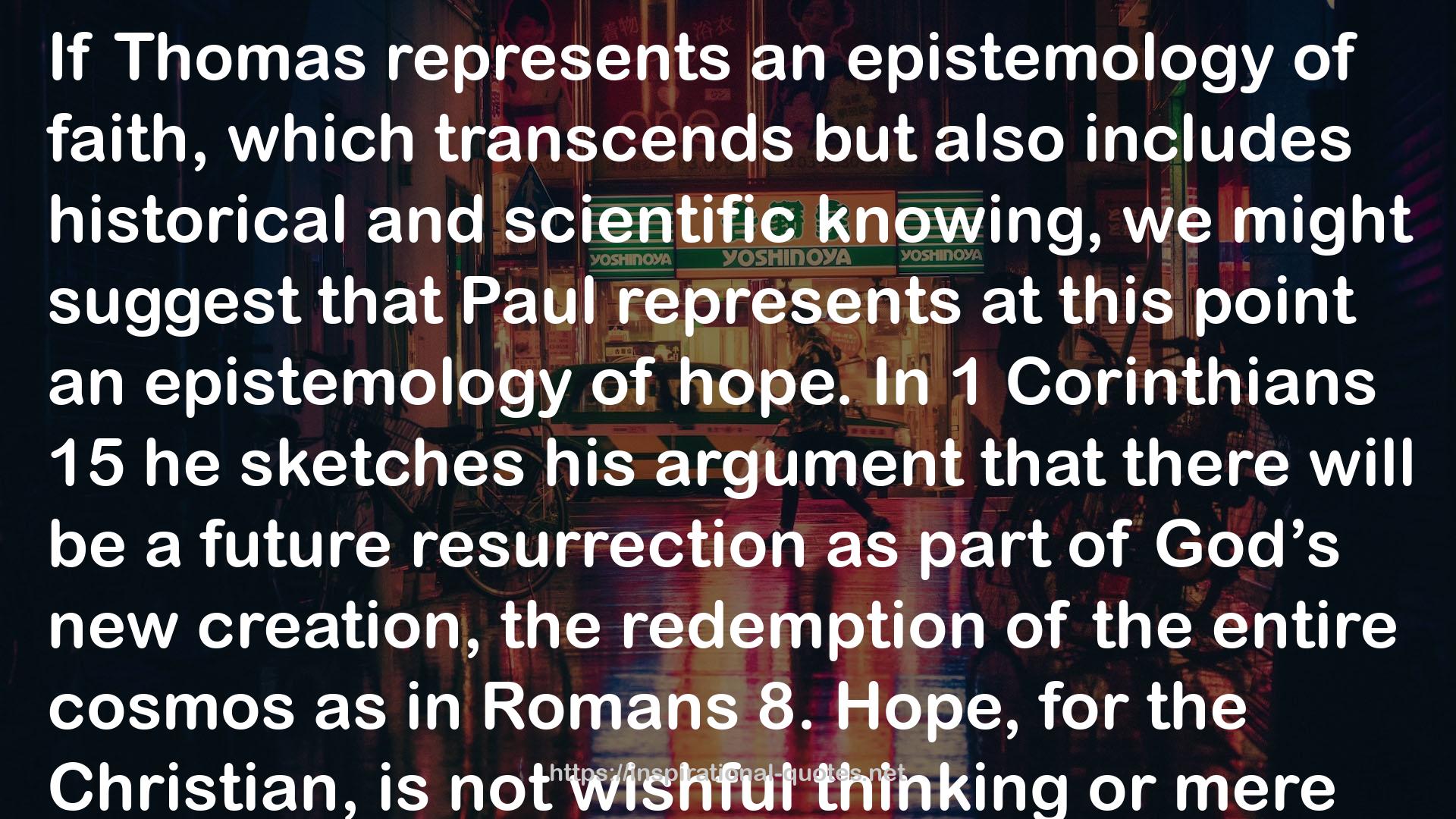" If Thomas represents an epistemology of faith, which transcends but also includes historical and scientific knowing, we might suggest that Paul represents at this point an epistemology of hope. In 1 Corinthians 15 he sketches his argument that there will be a future resurrection as part of God’s new creation, the redemption of the entire cosmos as in Romans 8. Hope, for the Christian, is not wishful thinking or mere blind optimism. It is a mode of knowing, a mode within which new things are possible, options are not shut down, new creation can happen. There is more to be said about this, but not here. All of which brings us to Peter. Epistemologies of faith and hope, both transcending and including historical and scientific knowing, point on to an epistemology of love—an idea I first met in Bernard Lonergan but that was hardly new with him. The story of John 21 sharpens it up. Peter, famously, has denied Jesus. He has chosen to live within the normal world, where the tyrants win in the end and where it’s better to dissociate yourself from people who get on the wrong side of them. But now, with Easter, Peter is called to live in a new and different world. Where Thomas is called to a new kind of faith and Paul to a radically renewed hope, Peter is called to a new kind of love.15 Here "
― N.T. Wright , Surprised by Hope: Rethinking Heaven, the Resurrection, and the Mission of the Church
